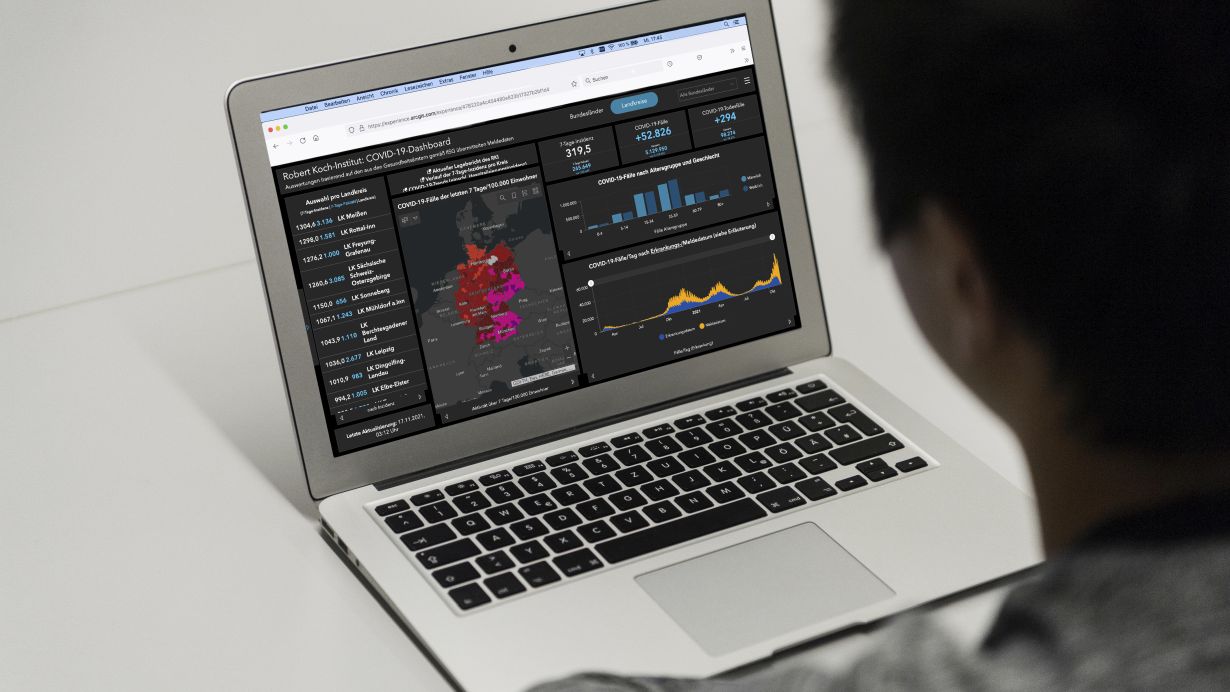The current Covid pandemic clearly shows how important reliable and generally understandable information is. Multimodal forms of risk and crisis communication are in the focus of the recently started MIRKKOMM collaboration project. Experts for science communication at Karlsruhe Institute of Technology (KIT) will study how multimodal crisis information is received and which cognitive and affective impacts it has. The corresponding partial project is funded by the Federal Research Ministry with about EUR 418,000.
How would citizens like to be informed by authorities and media during a crisis? How well do messages by health institutions reach the public? How can information be processed understandably and credibly and disseminated effectively? Questions like these have gained importance during the pandemic. They are now studied within the framework of the new collaboration project “MIRKKOMM – Multimodality in Risk and Crisis Communication.” Studies focus on multimodal forms of communication, that is communication via different channels, including dashboards, brochures, new video formats, and visualizations. The Science Communication Department of KIT’s Institute of Technology Futures (ITZ) is involved in MIRKKOMM and concentrates on the reception of such multimodal information.
Laboratory Study and Online Survey
“We will contribute an extensive laboratory study with eyetracks and knowledge tests as well as an online survey on the evaluation and acceptance of multimodal communication offers,” says Professor Hans-Jürgen Bucher, who was appointed Distinguished Research Fellow after the acquisition of the project. He heads the partial project at the Science Communication Department together with Professor Annette Leßmöllmann. “In times of crises, authorities and citizens are forced to make decisions on the basis of frequently uncertain and partly controversial information,” Leßmöllmann explains. “It is therefore important to find out which communication offers convey credibility and build up trust.” In detail, KIT researchers will study how citizens and staff of authorities receive multimodal crisis information and which cognitive and affective effects this information has on them, meaning which criteria they use to evaluate the information, how these criteria influence their risk perception, and which action requirements they derive from this information. The goal is to develop offers tailored to the addressees and to eliminate deficiencies in the authorities’ communication. KIT’s project team can rely on vast experience gained from earlier research projects on science communication.
Collaboration of Research and Practice
Altogether, the interdisciplinary MIRKKOMM project covers eight partial projects. Experts in media and communication sciences, political science and law, psychology and informatics are involved. The project started on October 1, 2021 and is scheduled for a duration of three years. Under the program “Research for Civil Security,” the Federal Ministry of Education and Research (BMBF) funds the project with a total of about EUR two million. The funds granted for KIT’s partial project total about EUR 418,000. MIRKKOMM is coordinated by the Federal Institute for Risk Assessment (BfR), an independent scientific institution that provides advice to the Federal Government. Apart from BfR and KIT, Technical University of Ilmenau, SRH Berlin University of Applied Sciences, European University Viadrina in Frankfurt an der Oder, and mecom – Medien-Communikations-Gesellschaft mbH, a subsidiary of Deutsche Presse-Agentur (dpa) are among the partners. MIRKKOMM is supported by researchers from the USA, the Netherlands, Australia, and Germany and institutions, such as Robert Koch Institute, the Federal Agency for Civic Education, and dpa.
More information: https://www.wmk.itz.kit.edu (in German)
Being “The Research University in the Helmholtz Association”, KIT creates and imparts knowledge for the society and the environment. It is the objective to make significant contributions to the global challenges in the fields of energy, mobility, and information. For this, about 10,000 employees cooperate in a broad range of disciplines in natural sciences, engineering sciences, economics, and the humanities and social sciences. KIT prepares its 22,800 students for responsible tasks in society, industry, and science by offering research-based study programs. Innovation efforts at KIT build a bridge between important scientific findings and their application for the benefit of society, economic prosperity, and the preservation of our natural basis of life. KIT is one of the German universities of excellence.

